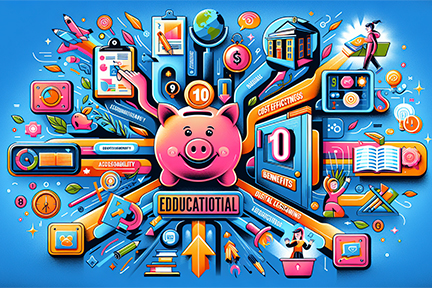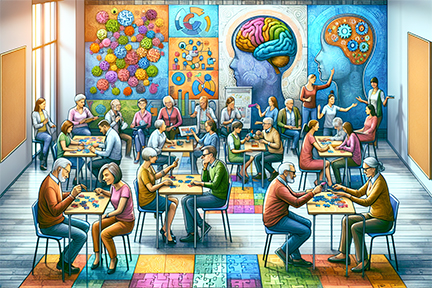
Looking for effective educational apps for adults? In this article, discover top apps that cater to adult learning needs, boosting your skills, knowledge, and career prospects. Learn how these apps fit into your busy schedule and enhance your daily routines.
Understanding adult learning needs
Adult learners have distinct needs and preferences compared to younger learners. They often prefer self-directed learning, choosing what and how they learn. This autonomy helps tailor their learning experiences to their interests and schedules, making them more relevant and engaging.
Drawing from a wealth of life experiences, adult learners can apply past knowledge to new situations, enhancing understanding and retention in the learning process. They prioritize learning that directly applies to their real-life situations, maintaining motivation and engagement. For example, a retiree might focus on health and wellness topics to improve daily life.
Key motivators for adult learners
Understanding what drives adults to continue learning is key to creating effective educational experiences. For many, the relevance of learning to their personal or professional lives is a primary motivator. They focus on achieving specific goals and expect tangible results, such as learning a new language with an app like Duolingo to open travel opportunities and enhance career prospects.
Social connections can also play a powerful role in motivating adults to engage in learning environments, providing a sense of community and support.
 10 benefits of using educational apps for seniors
10 benefits of using educational apps for seniors
- Flexibility and Convenience: Educational apps like Headway allow seniors to learn at their own pace and on their own schedule, accommodating varying levels of free time and energy.
- Accessibility: Many educational apps are designed to be user-friendly and accessible, catering to seniors who may not be tech-savvy.
- Cognitive Stimulation: Regular use of educational apps can help keep the mind active and engaged, potentially delaying cognitive decline.
- Personalized Learning: Seniors can choose subjects that interest them, making learning more relevant and enjoyable.
- Social Interaction: Some apps offer social features, allowing seniors to connect with others, share progress, and participate in group learning activities.
- Cost-Effective: Many educational apps are free or offer affordable subscriptions, making them a cost-effective way to continue learning.
- Variety of Content: Educational apps cover a wide range of topics, from language learning to health and wellness, providing diverse learning opportunities.
- Skill Development: Apps can help seniors develop new skills or improve existing ones, such as learning a new language or enhancing computer literacy.
- Motivation and Engagement: Gamified elements and progress tracking in educational apps can motivate seniors to stay engaged and committed to their learning goals.
- Health and Wellness: Some apps focus on health education, helping seniors learn about topics like nutrition, exercise, and mental health, which can improve their overall well-being.
How to integrate educational apps into daily routines
Integrating educational apps and learning apps into daily routines shifts the focus from sporadic learning to regular engagement. Creating a routine around app usage, like setting specific reminders for educational activities, can trigger desired learning behaviors. Consistency is key to making learning a habit and reaping cognitive benefits.
Selecting an educational app involves assessing its user interface and navigation for ease of use. Ensuring compatibility with various devices and adherence to accessibility standards is also important for a seamless learning experience.
Incorporating these apps into daily routines allows seniors to enjoy continuous learning and cognitive stimulation.
 The role of cognitive training in adult learning
The role of cognitive training in adult learning
Cognitive training plays a vital role in maintaining and enhancing cognitive abilities in adults. Brain-training apps like Lumosity and Elevate can improve memory and thinking skills, especially in older adults experiencing cognitive decline. These apps offer a variety of activities with increasing difficulty, ensuring users remain challenged and engaged.
Regular and intensive use of cognitive training apps is necessary for effective results, as benefits may diminish when usage stops. While some studies question the real-life applicability of these improvements, many users report enhanced cognitive function and better performance in daily tasks.
Additionally, apps like Brilliant foster critical thinking through interactive problem-solving and gamified lessons, making cognitive training fun and effective.
Summary
In summary, educational apps offer a convenient and effective way for seniors to maintain cognitive health. By understanding adult learning needs and motivators, selecting the right apps, and integrating them into daily routines, seniors can enjoy continuous learning and personal growth. Cognitive training and scientific insights further highlight the benefits of regular mental exercises and healthy lifestyle choices.
We encourage seniors to explore the educational apps and resources mentioned in this blog post and adopt the suggested practices for cognitive health. Continuous learning is not only beneficial for the mind but also enriching for the soul. Keep learning, stay curious, and enjoy the journey of lifelong education.
